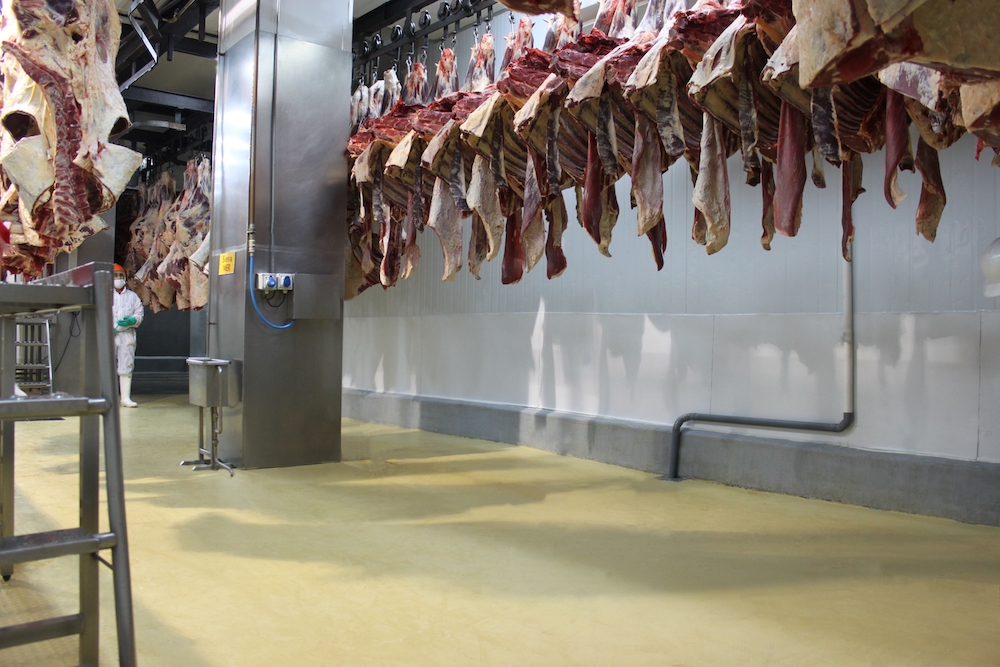Meat Processing Plant Flooring
Meat processing plants provide some of the most challenging environments for flooring. The flooring materials must be cleanable, chemical resistant, have high compressive strength and meet strict hygienic conditions.
Unique Flooring Conditions in a Meat Plant
Ambient conditions, two ends of the extreme; some areas cool during production others very warm. Both are constantly wet or under water and exposed to animal blood, fat and other products. Floors are subjected to significant temperature variations. Cleaning and sanitation operations can subject the floor to a high degree of thermal cycling.
Most meat plants use strong cleaners due to the need to clean grease, oil, and other organic matter. It is not unusual to clean with steam to clean and degrease which exposes the floor to dramatic thermal shock.
Most meat plant floors present slip hazards, the process is always wet along with the presence of fats and oils. Employees must have secure footing when working near equipment and forklifts. Flooring must provide anti slip characteristics to prevent slip/fall accidents. Occasionally the worn anti slip may need to be re done.
Most processing floors are also subjected to heavy forklift and pallet jack traffic. Some even have steel wheel traffic with equally heavy loads that can destroy thin toppings and concrete. Damage can occur near floor joints.
All meat processing plants are placed under strict requirements by the USDA and the FDA in order to ensure the safety to the consumer and the food supply. Plants can be subjected to fines and/or closure for failure to comply with regulations.


